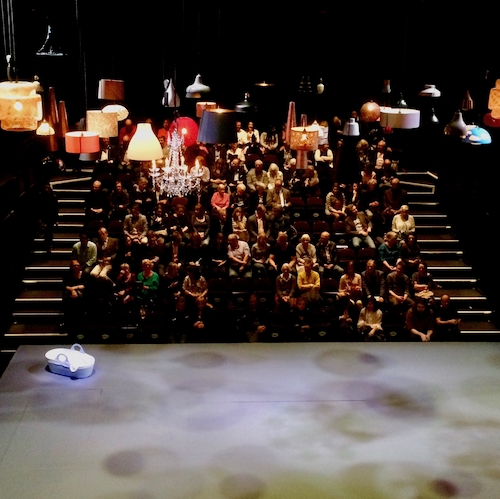We were back at the National Theatre last Thursday for Nina Raine’s Consent directed by Roger Michell, a new play that’d been out for all of one week. Uncharted theatrical territory, ahoy!
At its heart, Consent explores the liminal spaces that exist between people and within them. It’s a play about infidelity, irrationality, justice, and consent, and Raine exposes the shades of grey inherent in these concepts, the interactions of her characters on stage swiftly dismissing all black and white absolutes. The play’s conceit lies in framing its domestic drama against the legal battle of a rape trial, and the mutual backwash from courtroom and living room leads Raine’s characters to confrontations over the most intricate circumstantials.
Perhaps the production’s most impressive achievement is moving its audience to care about its characters, all imperfect people making callous and selfish decisions.[1] “I hated everyone, but I felt bad for them anyway,” was the verdict many of my classmates arrived at. And ultimately that’s the point – Consent is about real people, and real people make dumb decisions even if they’re terrible ideas. Consent is about us, and we feel it.[2] Credit for pulling that off goes all around, particularly to the complex characters and motivations written in Raine’s script and the unrestrained emotional performances of the actors. Anna Maxwell Martin and Ben Chaplin in particular impress as Kitty and Ed, spinning a fractured marriage out of heated arguments, domestic interrogations, objects thrown across stage, and underlying all that, something that could be love. Watching their interactions post-Kitty’s admission of infidelity is an unsettling experience – they vacillate between eerie geniality and unbridled rage, and the play’s final image of the two of them kneeling face to face is a poignant moment left open-ended. It’s not for the audience to form a coherent theory of Kitty, Ed, or their relationship; they’re all irrational in the most human sense.
The realism of the play also owes much to the intimacy of its set. We saw Consent at the smallest of the National’s three auditoria, the Dorfman Theatre. The stage is a simple platform, and the audience literally surrounds it on all four sides, resulting in a viewing experience that feels raw and unembellished. That’s not to say that it’s impersonal. The black box of the Dorfman is adorned with a canopy of assorted lamps that light it up and lend the stage a twee eccentricity.[3] Furniture in various stylings and colorful playroom décor join the actors in breathing character into the space. It’s easy to lose yourself in the living room that the theater has been transformed into.
The smallest of Michell’s directorial decisions play a huge part in making Consent feel more real than other plays we’ve watched. There are long pauses as characters walk each other to the door off-stage, as whoever is left waits awkwardly for their return. Scenes don’t just end and begin again – during transitions you see Kitty storming across the stage as she rearranges props, as if harboring her anger from the previous scene even with her face out of the spotlight. Kitty and Ed’s newborn is even played by an actual, real-life, in-the-diaper-wrapped-flesh baby on stage as the play opens, which started crying midway through a stretch of dialogue, as babies are wont to do. At that point, Maxwell Martin moved with all the habitual nonchalance of a new mother to relocate the infant off-stage, without a single break in the conversation. There’s no scripting this stuff.
In that vein, my biggest quibbles with the play arise in places I feel its realism falls through. Gayle, the woman whose rape case is heard in court, seems more plot device than person. Her intrusion on the group’s party at the end of the first half is a powerful moment for the play, but her character’s presence there is highly implausible. The offhand mention of her suicide in the second half only compounds the sense that she’s there for effect. Kitty abruptly dropping her marital rape charge against Ed also comes across as an afterthought – less a pointed comment on the nature of such cases than a result of the play jettisoning loose ends as it barrels toward its resolution.[4]
That aside, when Consent makes its points heard, they hang in the air and the mind, beyond any one character’s lines. Watch this play if you want a nuanced, unfiltered discussion of rape and responsibility in the court and at home. Watch this play if you want a high-octane exploration of interpersonal relationships. Watch this play if you like good acting and smart writing. Watch this play.[5]
~ Nathaniel Chew, ‘19
Consent is showing at the National Theatre until 17 May 2017.
[1] Worse still, some of them are lawyers.
[2] If you are not a real person, skip ahead to the next paragraph.
[3] An aesthetic familiar to regulars of Pinterest DIY room decor boards.
[4] If one can call something so resolutely unresolved a “resolution.”
[5] If you want to, that is.

